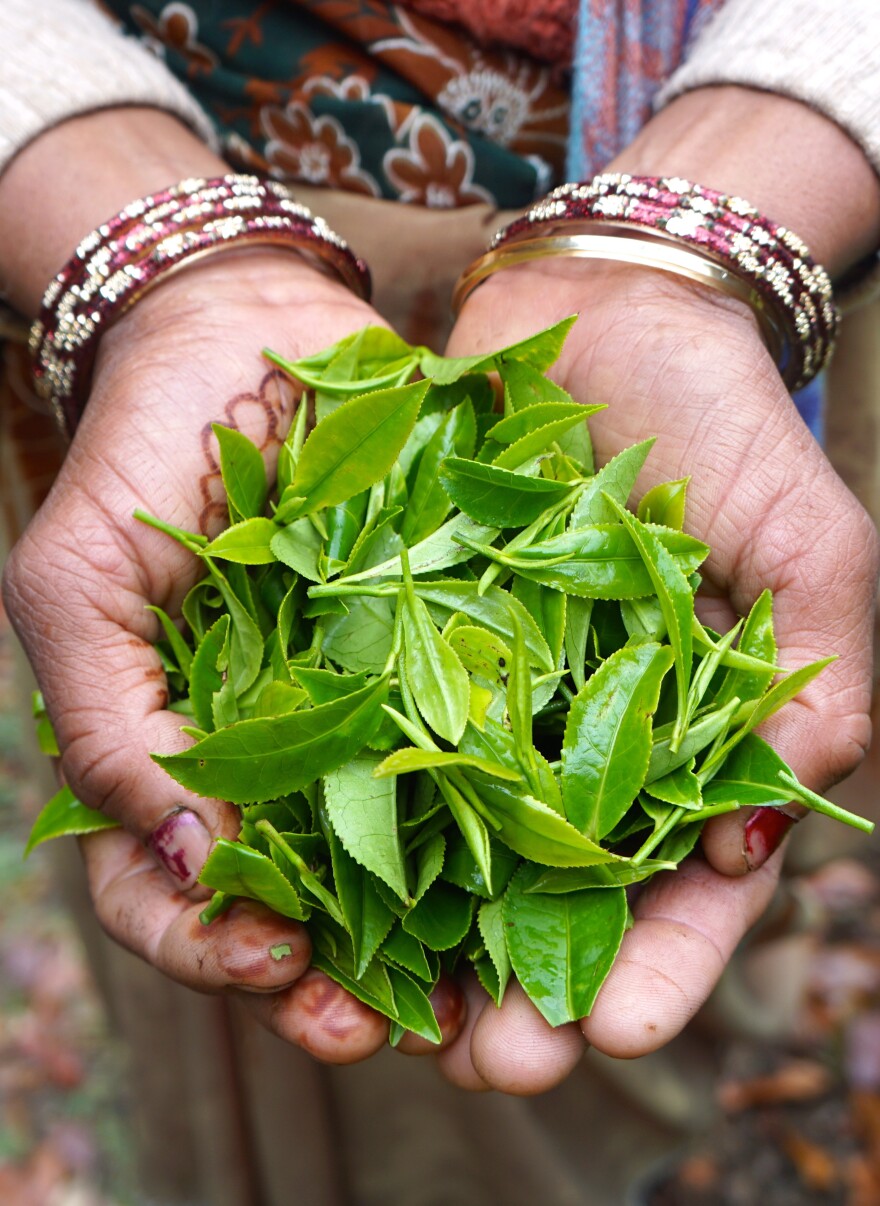A local entrepreneur and University of Oregon graduate has established a tea importing business in Springfield. This unique company works directly with tea farmers in India and is aimed at supporting rural communities. He founded this mission driven business to address international tea labor issues. KLCC’s Corinne Boyer has this story.
In an office above the Public House in Springfield, sit dozens of large brown sacks of tea. Pinned to a wall is a West Bengal Tourist map of India. That’s because this tea was grown, produced and then shipped from gardens in the Kumaon region of Northern India. This is Young Mountain Tea, where Raj Vable directly imports tea from Indian farmers. Vable was working on a Fulbright fellowship and wanted to get out of the electrical engineering field. So he found another way to create jobs at the foot of the Indian Himalayas.
Vable: And so by working directly with the communities, and by linking these communities up with world renowned producers across the world, we’re able to raise the quality and make sure that the money that gets earned from the sale of the tea stays in the hands of the people who actually do the hard work of growing it.
Indian tea farmers are usually paid about ten cents per pound Vable says. Then its sold in the U.S. for around $80 per pound.

Vable: So that’s an 80,000 percent markup between the producer and the consumer.
So what we’re able to do is leverage that incredible margin to not only pay the farmer more but then also develop a viable business.
Vable brews a cup of white tea.
Vable: My favorite tea is white tea--what we are drinking right now. It’s just so gentle and balanced. This particular tea is from our star producer Desmond Birkbeck in the northern part of India. And it was his first time making this tea.
Birkbeck is a third generation tea grower from the town of Champawat. Via Skype he points out the scenery at the planation started by his grandfather. It’s monsoon season so the trees, bushes and greenery are vibrant and cover every inch of the hilly backdrop.
Birkbeck: So now tea is my passion, so I thought ok fine if there’s somebody interested in tea then why not. And suddenly Raj pops up and he says can you make this kind of tea. It’s the first time that I’m looking at the white tea he has in his hands, and I said ok fine I looked at it, smelled the tea, and I said well if somebody has made it why can’t we make it.
Birkbeck oversees approximately 500 acres of tea plants. Since working with Young Mountain Tea, Birkbeck says his production has doubled. In turn, the growing tea gardens have created more jobs in a rural area with limited opportunities.
Birkbeck: A lot of young aspiring Indians want to come to the states to work there. Similarly up here in the hills, all these young boys will study a little bit and then they want to go down to the plains or the cities to work.
Mission-driven businesses like Young Mountain Tea are common in the Eugene/Springfield area and in the state. That’s according to University of Oregon food studies professor Stephen Wooten. He says businesses are using food, whether its wine, cheese, or power shakes, as a way to do business and build community.
Wooten: I think our community, the Eugene Springfield community, has a lot going on in terms of entrepreneurial activity driven by profit, but it’s also driven by a kind of commitment to people and the planet as well.

Raj Vable says he sees Young Mountain Tea Company as an experiment allowing different cultures to work together for the common good.
Vable: I’m the son of Indian immigrants. I really think that the values that both cultures have present a really exciting way to addresses some of the problems that we are facing.
Tea grower Desmond Birkbeck says now there are 428 people working in Champawat. And he hopes that that more people in the states will drink tea.


